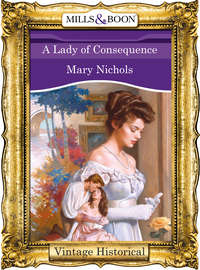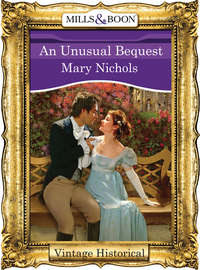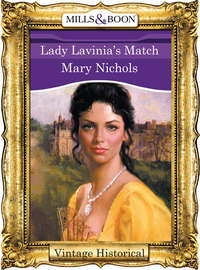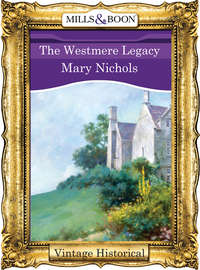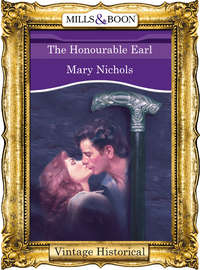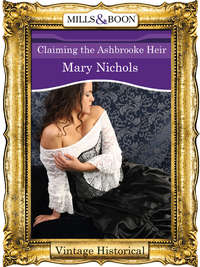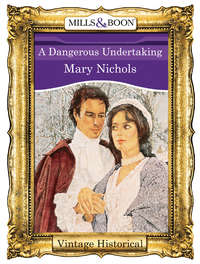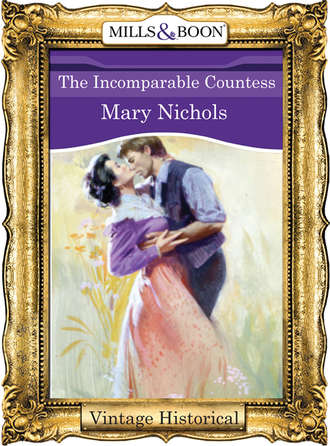
Полная версия
The Incomparable Countess
‘Why different?’
‘Oh, long memory and nothing else to fill it,’ he said vaguely. ‘Now, do we go home, or shall we have a canter across the grass?’
She laughed. ‘A gallop, I think.’
It was not considered the thing for ladies to gallop; indeed, they should do no more than walk or trot along the ride, the whole point of the exercise being to see and be seen, but Frances had never slavishly obeyed the rules and, because she was popular with everyone and considered quite beyond the marriage mart, no one took any notice when she veered off across the grass towards the middle of the park and spurred her horse into a gallop.
Sir Percival followed and half an hour later, exhilarated and free of the cobwebs in her mind which had plagued her overnight, they turned for home.
And that afternoon, just to prove her independence, she took her sketch pad and crayons and asked John Harker to drive her to the East End, where she positioned her stool and easel on one of the docks and drew a tea schooner being unloaded. Its spars and rigging were something of a challenge and totally absorbed her until it was time to return home. Marcus Stanmore, Duke of Loscoe, was banished from her mind and he did not return to it until the following afternoon.
She had taken the portrait to the Willoughby mansion and watched as her ladyship instructed a footman hold it up in one place after another in the main drawing room, undecided where it would look to best advantage. The obvious place was the wall over the Adam fireplace, but that already held a heavy gilt mirror; the fireplace recess was not light enough and the wall opposite the window too light; the sun shining upon it would spoil its colours.
‘Perhaps it should go in another room,’ Frances suggested when the footman had moved it for the fourth time and was looking decidedly bored with the task.
‘Oh, no, it must be in here. I want all my callers to see it. Perhaps I should have the mirror taken down…’
‘I think the heat from the chimney might crack the canvas in time, my lady.’
It was at this point Lord Willoughby arrived and, being asked his opinion, stroked his chin contemplatively and pointed to an empty space to one side of the room, well away from the fire. ‘Leave it on its easel and put it there.’
‘Not hang it?’ her ladyship queried. ‘Will it not look unfinished?’
‘No, why should it?’ He laughed. ‘You can move it about as the fancy takes you. You might even start a fashion for displaying pictures on easels.’
Her ladyship clapped her hands in delight. ‘So I shall.’ She turned to Frances. ‘Dear Countess, can I prevail upon you to let me borrow your easel until we can procure one?’
‘Oh, you do not need to borrow it,’ Frances said, thinking about the fat fee she had only a few minutes before put into her reticule. ‘Have it with my compliments.’
‘I think I will cover it until everyone is here,’ Lady Willoughby said happily. ‘Then I can unveil it with a flourish. It is so good and will enhance your reputation even further, my dear Countess. How you manage to produce something so exactly to life I shall never know, for I was never any good at drawing when I was young.’
Frances stifled a chuckle; the picture was undoubtedly of Lady Willoughby, but a much slimmer Lady Willoughby than the one who faced her in the flesh—mounds of it. And the good lady could not see the difference. But surely her husband could and so would everyone else. Frances began to wonder, and not for the first time, if she was prostituting her art and ought to have more self-respect, when a footman announced the first of her ladyship’s guests.
They came in one by one, were greeted, asked to sit and plied with tea and little almond cakes. The easel stood covered by a tablecloth. Frances wished she could make her escape before the unveiling. She had never been happy publicising herself and her work, thinking it smacked of conceit. She was on the point of taking her leave when the Duke of Loscoe and Lady Lavinia were announced. She had been half out of her seat, but now sank back into it, feeling trapped.
He came into the room, entirely at ease even knowing that everyone was looking at him. He was dressed in a dark blue superfine coat with black buttons and a high collar. His cravat, in which glittered a diamond pin, testified to the attentions of a very good valet and his hair had obviously been cut by one of the haut monde’s best hairdressers. His long muscular legs were encased in pale blue pantaloons and tasselled Hessians. A concerted sigh escaped all the ladies except Frances, who refused to follow the pack.
He made his bow to his hostess. ‘My lady, your obedient.’
‘We are indeed honoured that you could attend our little gathering, your Grace,’ her ladyship simpered. ‘And this must be Lady Lavinia.’
‘It is indeed.’ He turned to his daughter. ‘Make your curtsy, Vinny.’
Lavinia did as she was told and even managed a smile as she murmured, ‘My lady.’
‘Now let me introduce you to everyone,’ Lady Willoughby said, and proceeded to conduct him round the room. He bowed to everyone, murmured polite nothings and moved on, followed by his daughter, whose smile was so fixed, Frances wondered what dire threat Marcus had made to produce it.
‘The Countess of Corringham,’ her ladyship said, suddenly looming large in Frances’s vision. ‘But I believe you are acquainted.’
‘Indeed.’ He bowed. ‘How do you do, Countess?’
She managed a smile, wondering if it looked as fixed as Lavinia’s. ‘I am very well, your Grace.’
‘The Countess is the reason for our little gathering,’ Lady Willoughby went on. ‘The guest of honour, you might say, excepting your good self, of course.’
‘Indeed?’ he said again, lifting a well-arched eyebrow at Frances, a gleam of humour lighting his dark eyes. It totally bewildered her. Had he forgotten? Or was he, like her, pretending nothing had ever happened between them? ‘I am sure it is well deserved.’
Lady Willoughby appeared not to notice as she turned away and clapped her hands for attention. ‘My friends,’ she said. ‘This is not a formal occasion, so there will be no speeches, but I particularly wanted you to be the first to see this.’ And with that, she tugged the cover off the portrait. ‘It is the most recent work of the Countess of Corringham.’
There was silence for about two seconds, two seconds in which Frances wished the floor would open up and swallow her, and then there was a burst of applause which was soon taken up by everyone, followed by a babble of conversation. ‘She has caught you to the life, Emma.’
‘The flesh tones are superb.’
‘You can pick out every individual hair.’
‘The hands are good too. Not everyone can portray hands.’
‘I am flattered,’ Frances said, rising to receive the plaudits. It brought her standing uncomfortably close to the Duke.
‘Flattered?’ he murmured in her ear. ‘Methinks it is you who do the flattering.’
‘Why not? It does no harm,’ she whispered back, trying to ignore the frisson of something she refused to identify that coursed through her at his nearness. Seventeen years fled away as if they had never been. Mentally she shook herself, reminding herself that water never flowed backwards.
‘I believe it harms you.’
‘Fustian!’ Just in time she stopped herself adding, ‘And what does it matter to you what I do?’ The last thing she wanted was a personal altercation with him.
‘Are you so in need of funds that you must produce insipid stuff like this?’ He nodded towards the portrait.
‘Lady Willoughby is delighted with it. And that means others…’
‘Will want to fling money at you too.’
‘Nothing wrong with that.’
‘No, but I thought you had more spirit.’ He smiled at their hostess, who was bearing down upon them.
‘Lord Loscoe,’ she gushed. ‘What do you think? Is it not an excellent likeness?’
He bowed. ‘Oh, excellent,’ he said, ignoring Frances’s splutter of laughter at his duplicity. ‘Lady Corringham is indeed very talented.’
‘Have you ever sat for your portrait, my lord?’ her ladyship asked.
‘Not for very many years,’ he answered carefully. ‘It can be a very tedious business, and I have so little time for it.’
‘Ah, but now you are in town, you must surely have some leisure. I can thoroughly recommend her ladyship.’
‘Oh, please, Lady Willoughby,’ Frances put in. ‘You are putting me to the blush.’
‘Oh, you are far too old to be blushing,’ the woman said tactlessly, a statement which made the Duke chuckle. Frances felt colour flood her face, which only proved how wrong her ladyship was. ‘Now, my lord, you must come and talk to my other guests. And Felicity is dying to make the acquaintance of Lady Lavinia.’
He bowed to Frances. ‘My lady, your obedient.’ And then he was gone, followed by his daughter.
Frances watched his tall straight back moving away from her and then her attention was taken by other people who wanted to talk to her about having their portraits painted. She was kept busy for several minutes, making appointments to meet them again to talk about their requirements, and she did not see the Duke and his daughter leave. A few minutes later she left herself.
As a business exercise, the afternoon had been a great success, though she was left wondering why her ladyship was so enthusiastically promoting her. Did she think she needed the money? But she did, didn’t she? Every penny.
That evening she attended a concert arranged by Mrs Georgiana Butterworth in aid of the war orphans, one of her favourite charities, and enjoyed the music immensely. She had not given the Duke of Loscoe another thought and was taken aback to see him during the interval talking animatedly to one of the guests. He was wearing an evening suit of black cloth and a pristine white cravat, simple clothes, but superbly cut, she admitted to herself, while wondering if he was truly interested in war orphans or was simply doing the rounds in search of his new wife, though the company could hardly be classed as the haut monde and not one of the worthy ladies present seemed to qualify. They were either married, too old, or not from the upper echelons of Society and he would never marry so far beneath him, as he had proved seventeen years before.
It was some moments before he saw her and then his eyebrows rose in surprise as if she was the last person he had expected to see. He excused himself from the matron who was engaging him in conversation and made his way over to her.
‘Countess, I had not anticipated seeing you again so soon.’
‘Nor I you. It is not a gathering I would have thought would interest you.’
‘Why not?’ he asked sharply. ‘The plight of children orphaned by war is a worthy cause and you must think so, too, or you would not be here.’
‘Indeed, I do.’
‘Then we have a mutual interest,’ he said.
She did not reply, and he looked quizzically at her. ‘Do you find that unacceptable, my lady?’ he asked softly.
‘What?’
‘That we are both interested in the orphans and wish to improve their lives.’
‘Not at all.’ She forced herself to ignore the swift beating of her heart. She was behaving like a lovesick schoolgirl and her thirty-five years old in a few weeks! ‘The more help they have the better. Some of them are in dire straits.’
‘Good. I should not like to think my presence in any way deterred you from your good work.’
‘Now why in heaven’s name should it?’ she retorted, her voice rising a fraction. She immediately dropped her tone to add in a hoarse whisper, ‘You are insufferably conceited, if you think that your presence or otherwise makes the slightest difference to me.’
‘Then I beg your pardon for my presumption.’
Mrs Butterworth joined them before she could answer. ‘I see you have made the acquaintance of the Duke,’ she said to Frances.
‘Oh, we are old sparring partners,’ Marcus said, a remark which sent Frances’s thoughts flying back to her studio and the painting of the pugilist. ‘We have not met these many years and were enjoying a coze about old times.’
‘How delightful! You must be gratified, my lady, that the Duke has joined our little band of subscribers. His name on the list will encourage others, do you not think?’
‘I am sure it will,’ she murmured.
‘We are looking for a good property to give some of them a temporary home until we can find new permanent homes for them,’ the lady told him, while Frances surreptitiously studied his face for signs of boredom and found none. But then he was always good at pretending. ‘At present they are housed in a dilapidated tenement in Monmouth Street, but the lease is running out, so we must find something more substantial and comfortable very soon.’
‘Then you may count on me for a donation, Mrs Butterworth,’ he said with a smile which totally captivated the good lady. Little did Mrs Butterworth know, Frances mused, that his smile hid a heart as cold and rigid as stone.
‘Oh, thank you, sir. This concert has been such a success that we are thinking of holding a ball to raise more funds. May we count on you to purchase a ticket?’
‘If I am not engaged on the evening in question, then I shall be happy to do so,’ he said with a smile.
The orchestra began tuning up their instruments and everyone was moving back to their seats for the second half of the programme. Marcus gave Frances a thin smile and inclined his head. ‘My lady.’
‘Your Grace.’
Frances returned to her seat, her thoughts and emotions in turmoil. Was her every move to be dogged by the Duke of Loscoe? Was he to be everywhere she went? She had never dreamed she would come across him at this unfashionable gathering. It had been a severe shock, more than the shock of meeting him in the park, or the encounter at Lady Willoughby’s. Was nowhere safe from his odious presence? But she could not hide herself away at home, could she? She had told him his presence made no difference and she must school herself to make that true.
It had to be true. If he had not been so long absent from London, if he had always been in the forefront of Society these last seventeen years, she would have become inured, she told herself; it was his sudden reappearance that was causing the upheaval and reminding her of that summer in 1800. One summer. One summer could not possibly be important now. She was making a mountain out of a molehill. And there was far more to life than dwelling on the past.
It was when they were all taking their leave that she saw him again. She had just taken her pelisse from Mrs Butterworth’s footman, when she felt a hand helping her on with it. She turned to thank whoever it was, only to find herself looking into the amber eyes of the Duke of Loscoe, and like amber they seemed to have a light and depth of their own, as they surveyed her face. ‘Thank you,’ she said coolly.
‘You seem to be without an escort, my lady—may I offer my services?’
‘I have my carriage, thank you.’
‘Then I will say goodnight.’ He took his hat from the footman and clamped it on his head before striding down the path to the road where his own coach waited. ‘Take the carriage home, Brown,’ he told his driver. ‘I will walk back.’
It was a good walk, more than two miles through some of the less fashionable areas of London, but he felt in need of the exercise. Since coming to London he had missed the long walks and exhilarating gallops he enjoyed at his Derbyshire home; he was becoming a sloth and putting on weight. Perhaps he should take up sparring again. Was he too old for that now? It might be interesting to find out if he had retained any of his old skill.
Thinking of sparring made his thoughts turn to Fanny Randall—Lady Frances Corringham, he corrected himself with a wry smile. She had painted a picture of him stripped for a bout. He had been amazed at her skill and wanted it for himself, but she would not give it to him. ‘I did it for our eyes only,’ she had told him. ‘I will never part with it.’
But that was before… He shrugged his shoulders as he skirted the notorious Seven Dials district towards Covent Garden. Had she kept it or had his perfidy made her hate him and the painting along with it? He had behaved badly towards her, but how was he to know she was expecting an offer? He had been in no position to make one; the match between him and Margaret Connaught had already been negotiated by their respective fathers and there was nothing he could do about it.
He should never have sought her company so assiduously that summer, should never, never have told her he loved her, however true it was. But he had been a green twenty-three and not yet clever enough to hide his feelings, nor think of the consequences. He wanted to be with her, often compromised her by taking every opportunity to be alone with her, to hold her hand and smother her in kisses while declaring he could not live without her. And her eager responses had flattered him. He had even managed to take her on a picnic to Richmond, driving her in his curricle which had no room for anyone but the two of them, so they went without so much as a maid or a groom for a chaperon.
He had not given a thought to what he was doing to her until the whole Connaught family descended on London from their home near Edinburgh and he found himself having to escort his intended for the rest of the Season and escaping to see Fanny became almost impossible. And when at last he did, at one of the Duchess of Devonshire’s balls, they had quarrelled.
He had tried, after partnering her in a country dance, to explain about Margaret, telling her that it was an arranged marriage and did not in any way alter his feelings for her, but she would not listen. ‘If you think that I am such a bufflehead as to allow myself to become your chére amie—that is the term, is it not?—then you are glaringly abroad, my lord,’ she had hissed angrily.
He had been shocked at her language and tried to deny that such a thing had ever entered his head, but afterwards, in the cold light of the following day, with his head aching from the wine and brandy he had consumed, he realised that she had been right. There was no way he could marry Margaret and continue to enjoy the company and kisses of Frances, except to take her as his mistress. But one did not make light o’ loves of seventeen-year-old girls only lately out of school. He wrote apologising for his behaviour and that was the end of the affair.
Had she forgotten it? He did not think so, but she had certainly made a quick recovery because she had married Corringham almost immediately, making him wonder if the Earl had been waiting in the wings all along. And now they were both free again.
It did not make any difference; they had grown up, matured, their characters had been forged on the anvil of life; they had become different people, strangers. He smiled, as he strode past the back of Carlton House towards St James’s Street and home—the latest on dit was that he was looking for another wife, but that was far from his intention. He was enjoying being single and was in no hurry to be leg-shackled again.
If it had not been for pressing business, he would not even have come to Town, certainly not in the Season, but because he had to come and because his daughter was sixteen and behaved like a boy of twelve and it was about time she was taken in hand, he had brought her with him. He was even now awaiting the arrival of his sister from Ireland, whom he had asked to come over and give her some polish. Charlotte had been delayed by her children having measles and here he was alone in London with a far from acquiescent daughter. And he had not the faintest idea what to do with her!
What he needed was someone like Frances Corringham. Fanny was cool and urbane, in the thick of everything, known by everyone. She was fashionably attired, knew how to conduct herself. She also had a prodigious talent. He laughed aloud, making one or two people nearby look sharply at him. They probably thought he was foxed, he did not care; it had come to him in a flash of inspiration, a way of keeping Lavinia occupied. He would ask the Countess of Corringham to paint her portrait and give her drawing and painting lessons.
He need not be present and it would leave him free to go about the business which had brought him to London. But would she do it? Was she still angry enough to turn him down? But she did not seem particular about whom she painted and was prepared to flatter her sitters for a fat fee, so why should she treat him any differently, if money was all she cared about? Tomorrow he would call on her.
Chapter Two
Frances smiled as she left the door of the rundown tenement in Monmouth Street which was home to some twenty orphans. If her Society friends could see her now, they would have apoplexy, she decided—that is, if they recognised her at all. Hatless and dressed in a grey wool dress and a short pelisse, she looked the image of a very ordinary woman, the wife or widow of a clerk or some such, respectable but nondescript.
Although, as Countess of Corringham, she was in the forefront of the charity which raised money for the orphans, it was as plain Mrs Fanny Randall that she worked at the orphanage, rolling up her sleeves to help bathe the children, or serve them the plain food which her money helped to provide. She loved the work and the children.
‘A real pied piper, you are,’ Mrs Thomas, the plump matron of the home, had said, adding that she must be sorry she had had no children of her own. Frances had passed it off with a smile, but her childlessness was the biggest regret of her life and something she found difficult to talk about.
She climbed up beside John Harker, who had been instructed to come and fetch her at noon in her tilbury. He was used to her ways and made no attempt to stop her when she picked up the ribbons and drove them towards Oxford Street, which was lined with shops and businesses, its pavements full of pedestrians and street hawkers. She tooled the horses with consummate ease, weaving the light carriage neatly in and out of the medley of riding horses, carts and carriages of every description which filled the road. No one paid any attention to an unmarked vehicle being driven by a nobody, but the slight chance she might be seen and recognised led an added piquancy to the adventure.
Less than twenty minutes later she turned into Duke Street and drew up with a flourish at the door of Corringham House, only to discover the Duke of Loscoe, dressed for riding, standing on the top step, apparently having found she was not at home and about to leave. She would have driven on in the hope he would not recognise her, but it was too late; he was standing quite still, staring at her. Was it in distaste? She could not be sure.
There was nothing for it but to carry off the situation as if it were nothing out of the ordinary for ladies of the aristocracy to drive themselves about town in what was considered to be a single man’s carriage. Throwing the reins to Harker and instructing him to see to the horses, she jumped down with an agility which the ladies of the ton would have described as hoydenish if they could have seen her, and advanced towards him, smiling.
‘Your Grace, I did not expect you, or I would have been at home to greet you.’
‘Good day, Countess,’ he said, doffing his curlybrimmed hat and bowing, while at the same time his dark eyes appraised the simple clothes she wore and his eyebrows rose just a fraction. ‘If it is inconvenient…’ His voice tailed off.
She smiled inwardly to think that he was more discomfited than she was. She could easily have asked him to come another time when she was prepared to receive him, but she had to admit to being a little curious. Why was he visiting her? Surely they could have nothing to say to each other after all this time? ‘It is not inconvenient, my lord. Please come in.’
The door had been opened by a footman who stood on the threshold, waiting for her to step inside. She led the way. ‘Creeley, show his Grace into the green salon and ask Cook to bring refreshments.’ She turned to the Duke. ‘Please excuse me while I change. I will not keep you long.’


